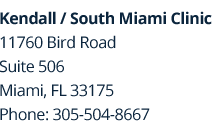Have you recently been diagnosed with benign prostatic hypertrophy (BPH) and feel worried or overwhelmed? You’re not alone – many men have concerns and questions about this condition, such as, “Is BPH dangerous?” or “How will it affect my quality of life?”
In this blog, Dr. Adam S. Gropper, a leading interventional radiologist and vascular specialist in Florida, will address these questions and more. He’ll share the nature of BPH, its causes, symptoms, and treatment options, and discuss its potential impact on your life.
If you’d like to know if you’re a good candidate for a minimally invasive treatment for BPH called prostate artery embolization (PAE), take our FREE 3-Minute Quiz to determine your International Prostate Symptom Score and see if you’re eligible for PAE.
We also invite you to contact the prostate specialists at our Prostate Specialists of Miami clinic by calling (786) 500-5347 to schedule your consultation.
Understanding Benign Prostatic Hypertrophy (BPH)
What is BPH?
BPH is a common condition in men, particularly as they age. It involves the non-cancerous enlargement of the prostate gland, which can cause urinary symptoms and discomfort. Though it can be a nuisance, BPH is not typically life-threatening.
Causes of BPH
The exact cause of BPH remains unclear, but experts believe it’s linked to hormonal changes that occur with age. Factors like genetics, lifestyle, and overall health may also play a role in its development.
Symptoms of BPH
The most common symptoms of BPH include:
- Frequent urination
- Difficulty starting or stopping urination
- Weak urine flow
- Straining to urinate
- Feeling that your bladder is not completely empty after urination
- Nocturia (waking up multiple times at night to urinate)
Treatment Options for BPH
Watchful Waiting
If your symptoms are mild, your doctor may recommend watchful waiting. This approach involves monitoring your condition without immediate treatment, allowing time to see if symptoms worsen or improve.
Lifestyle Changes
Making certain lifestyle changes can help alleviate BPH symptoms, such as:
- Reducing caffeine and alcohol intake
- Avoiding fluids before bedtime
- Practicing bladder training techniques
- Maintaining a healthy weight
- Staying physically active
Medications
Various medications can help reduce BPH symptoms, including alpha-blockers and 5-alpha-reductase inhibitors. Always consult your doctor before starting any new medications, as they can have side effects or interact with other drugs you’re taking.
Minimally Invasive Treatments
- Prostate artery embolization (PAE): If medications aren’t effective or your symptoms are more severe, PAE is a minimally-invasive procedure performed by an interventional radiologist that blocks blood flow to the enlarged prostate, causing it to shrink and relieve pressure on the urethra.
- Greenlight™ Laser Therapy (PVP): A minimally invasive procedure using a high-powered laser to vaporize excess prostate tissue, resulting in a shorter hospital stay and quicker recovery
- Rezūm™ Water Vapor Therapy: A minimally invasive treatment that uses steam to destroy excess prostate tissue, offering a shorter recovery time and fewer side effects than more invasive surgeries.
Unlike most other options, PAE does not impact sexual function. Because PAE is non-invasive, you can return to normal activities within 24 hours after the procedure.
You can read more about the benefits of PAE here and how to prepare for the procedure here.
Watch the informative video below.
Traditional Surgical Treatments
Among the available surgical procedures to treat an enlarged prostate, the following are the most common:
- Transurethral resection of the prostate (TURP): A common surgical procedure that removes excess prostate tissue using a resectoscope inserted through the urethra
- Transurethral incision of the prostate (TUIP): Involves making small incisions in the prostate to relieve pressure on the urethra; suitable for patients with smaller prostate glands
- Open prostatectomy: An option for patients with significantly enlarged prostates, and involves the removal of excess prostate tissue through an incision in the lower abdomen
Consult with your healthcare provider to determine the most appropriate course of action for your specific condition. Your provider will consider factors like symptom severity, prostate size, and overall health.
BPH and Quality of Life
While BPH is generally not life-threatening, it can significantly impact your quality of life. Frequent urination, discomfort, and disrupted sleep can be challenging to manage.
However, with appropriate treatment and lifestyle changes, many men find relief from their symptoms and maintain a good quality of life.
BPH and the Risk of Prostate Cancer
BPH is not prostate cancer, nor does it increase your risk of developing it. However, some symptoms of BPH can overlap with those of prostate cancer, making it essential to undergo regular check-ups and communicate with your healthcare provider.
Recap and Statistics
Here’s a recap and some statistics to help alleviate your concerns if you’ve been diagnosed with BPH:
- High prevalence, manageable condition: BPH is a common condition affecting about 50% of men between the ages of 51 and 60 and up to 90% of men over 80. While BPH can cause discomfort, it is usually manageable with appropriate treatment and lifestyle changes.
- Effective treatment options: A wide range of treatment options are available for BPH, from medications and minimally invasive procedures to more invasive surgeries. This means that there is likely an appropriate treatment option to alleviate your symptoms and improve your quality of life.
- Low risk of complications: While any medical procedure carries some risks, the complications associated with BPH treatments are generally low, especially if you choose a minimally-invasive treatment like PAE. Most men can expect a good outcome with proper treatment and management. In fact, one study showed clinical success rates for 1-3 years at 81.9% and for 3-6.5 years at 76.3% – with no urinary incontinence or sexual dysfunction reported.
- No increased risk of prostate cancer: BPH is not cancerous, and having BPH does not increase your risk of developing prostate cancer. However, it is important to undergo regular check-ups and communicate with your healthcare provider, as some symptoms of BPH can overlap with those of prostate cancer.
- Lifestyle changes can help: Adopting healthy lifestyle habits, such as maintaining a balanced diet, exercising regularly, and managing stress, can contribute to overall prostate health and may help alleviate BPH symptoms.
Being diagnosed with BPH can be concerning, but you can maintain a good quality of life with proper management and treatment. It’s essential to stay informed, communicate with your healthcare provider, and actively manage your condition. By doing so, you can ensure that BPH remains a manageable part of your life.
Frequently Asked Questions
Q: Is BPH a dangerous condition?
A: BPH is not generally considered dangerous, but it can impact your quality of life. With proper management, most men can maintain a good quality of life despite their condition.
Q: Can BPH turn into prostate cancer?
A: No, BPH is not cancer and does not increase your risk of developing prostate cancer.
Q: What is the best treatment option for BPH?
A: The best treatment option for BPH varies depending on the severity of your symptoms and overall health. Consult with your healthcare provider to determine the best course of action for you.
Q: Do I need surgery for my BPH?
Surgery is typically reserved for severe cases of BPH or when other treatment options have failed. Your healthcare provider will help determine if surgery is necessary for your specific situation.
Q: How can I prevent BPH?
A: While you can’t prevent BPH entirely, maintaining a healthy lifestyle, staying physically active, and keeping a healthy weight may help reduce your risk of developing the condition.
Searching for “Prostate Artery Embolization Doctors Near Me?”
If you’ve been diagnosed with BPH, we understand that you may have concerns. We hope this blog has addressed many of them and put your mind at ease. If you’re ready to learn more about the minimally invasive procedure called PAE, take the first step towards improved urinary function, health, and a more enjoyable quality of life – call us to schedule your consultation.
When you choose Prostate Specialists of Miami, you’ll meet our lead physician, interventional radiologist Dr. Adam S. Gropper. Dr. Gropper has over 20 years of experience treating venous and vascular disorders, including BPH.
He has served as an Associate Professor at FIU Medical School and recently retired from his position as Chief of Radiology at Jackson North Medical Center after 10 years of service.
Call (786) 500-5347 or complete our online form today to schedule your consultation to get relief from your BPH symptoms.
Copyright © 2023. Prostate Specialists of Miami. All rights reserved.
The information on this site is not intended or implied as a substitute for professional medical advice, diagnosis, or treatment. All content, including text, graphics, images, and information, is on or available through this website for general information purposes only. Prostate Specialists of Miami makes no representation and assumes no responsibility for the accuracy of the information on or available through this website. Such information is subject to change without notice. We encourage you to confirm any information obtained from or through this website with other sources and review all information regarding any medical condition or treatment with your physician. Never disregard professional medical advice or delay seeking medical treatment because of something you have read or accessed through this website.
Prostate Specialists of Miami
15400 Biscayne Boulevard #104
Aventura, FL 33160
(786) 500-5347
https://prostatespecialistmiami.com/


